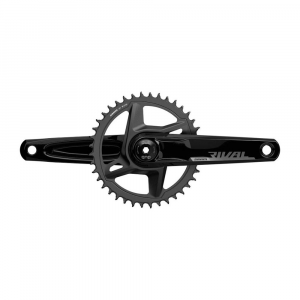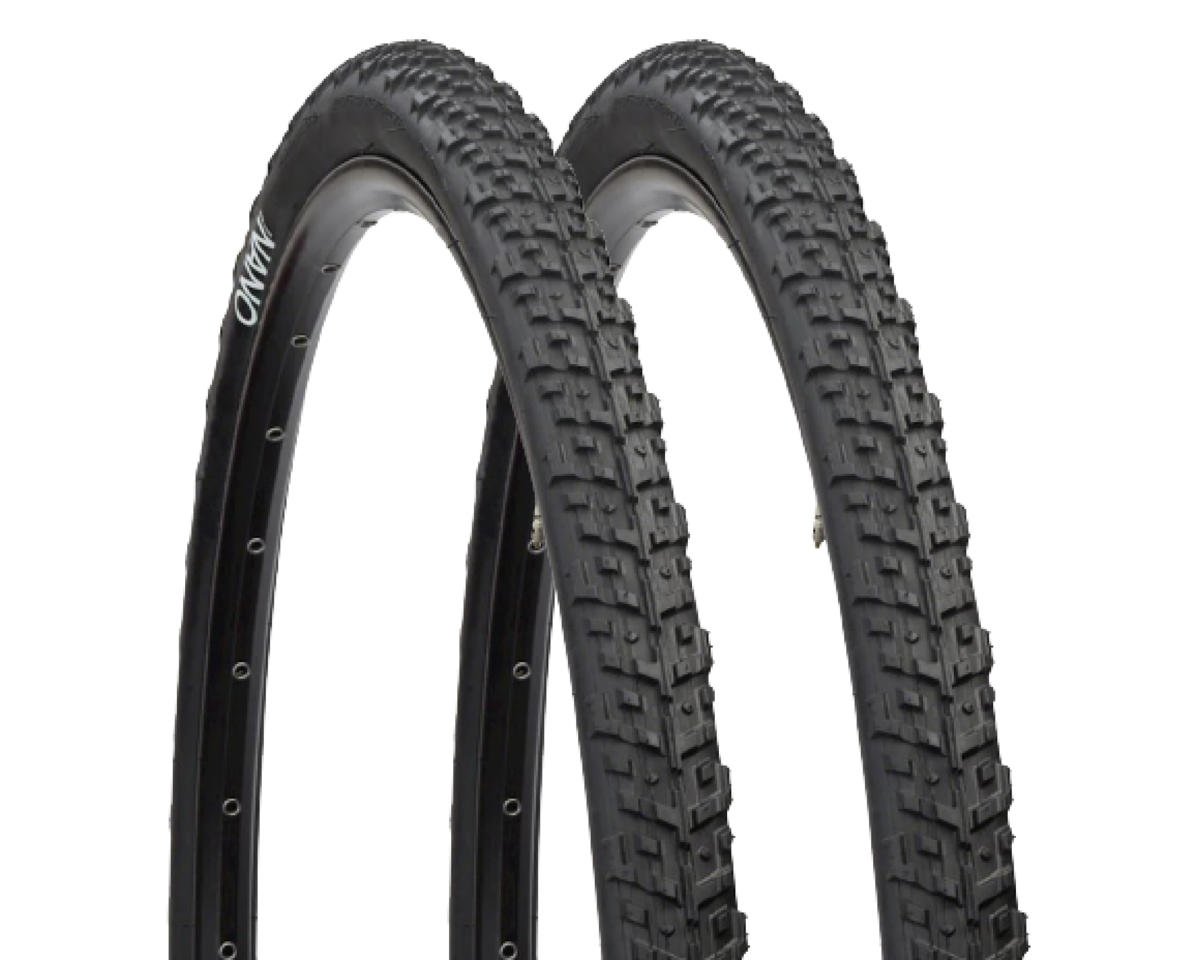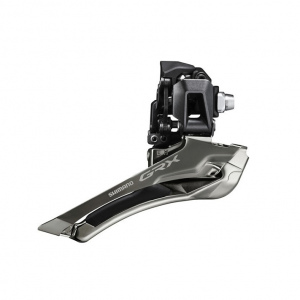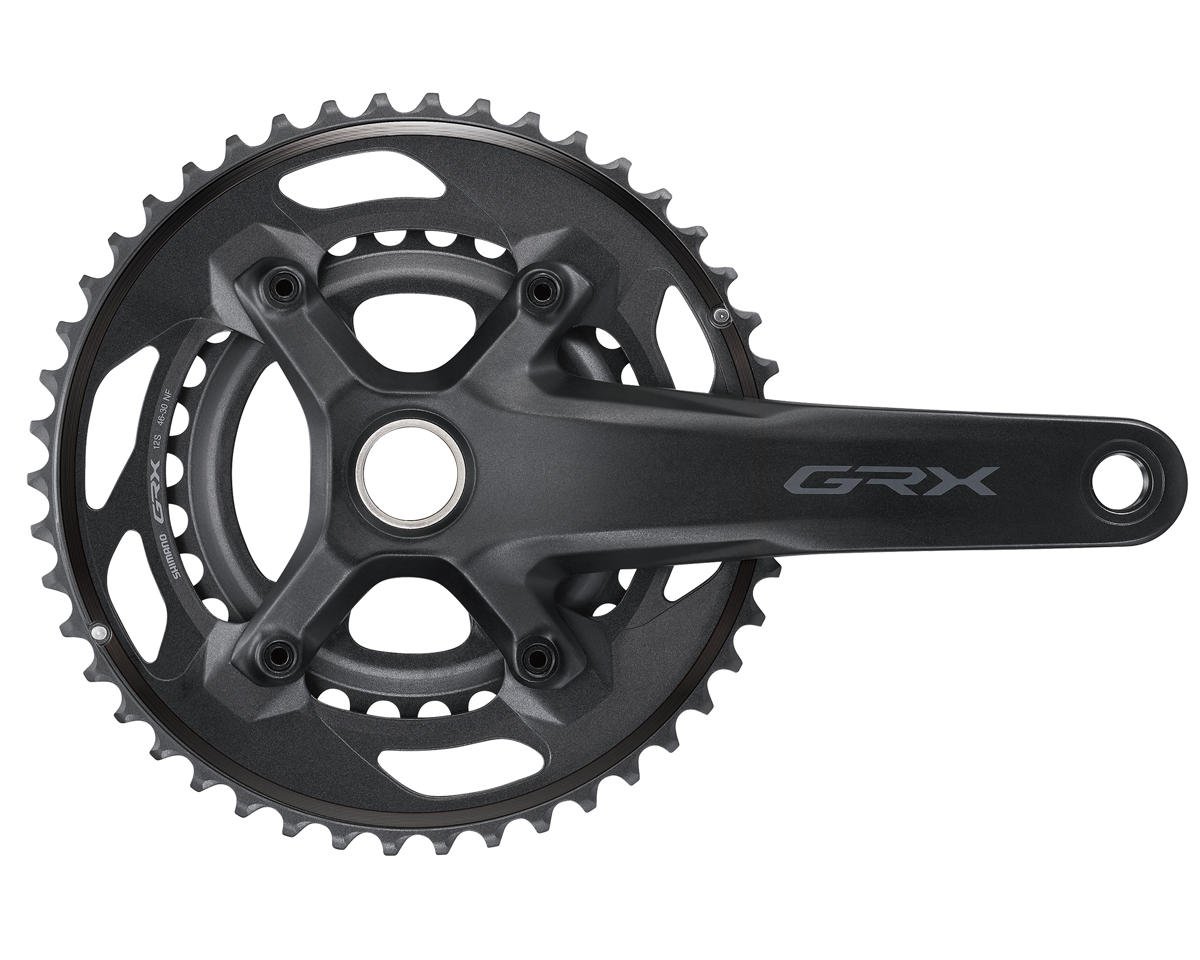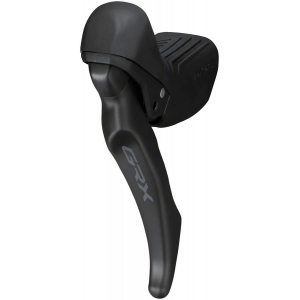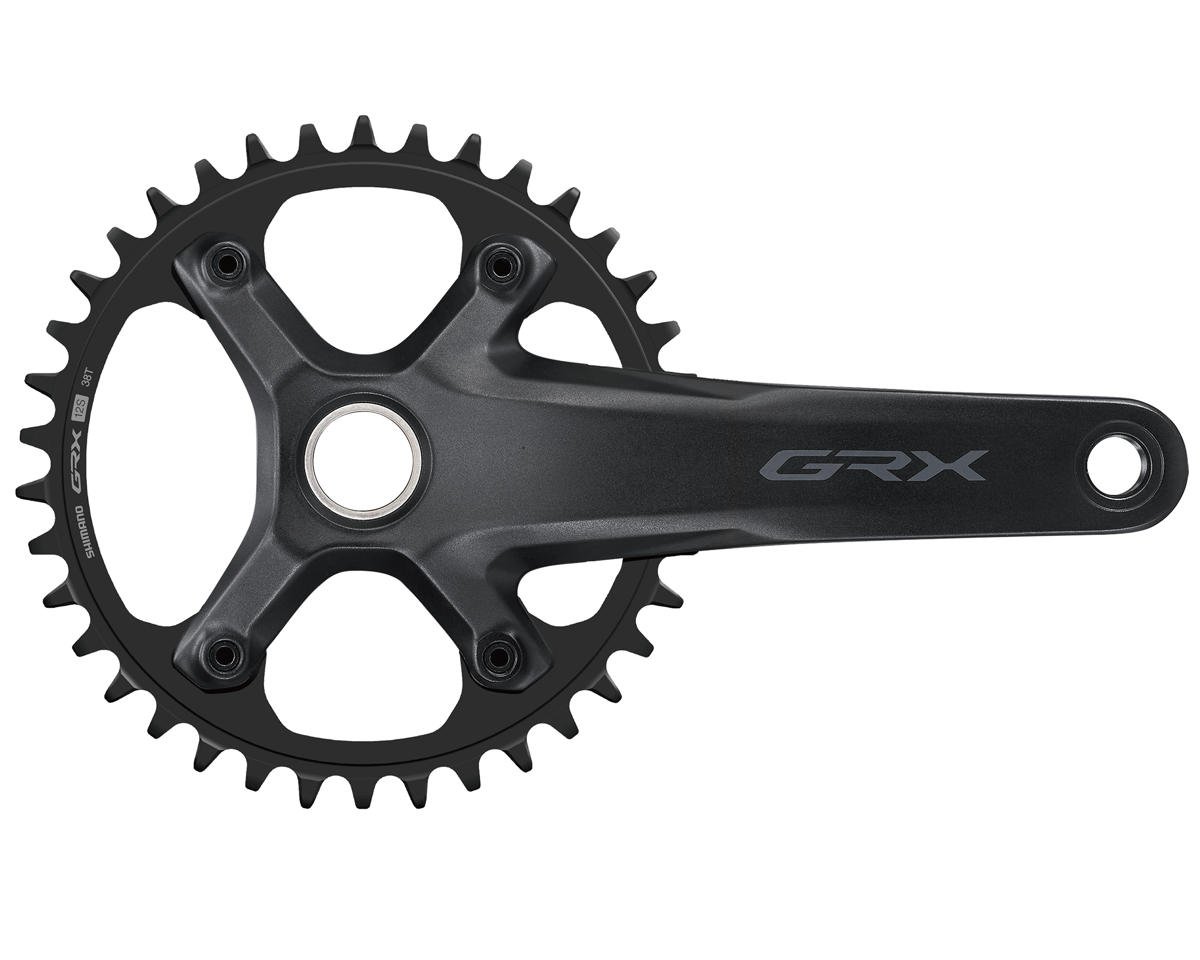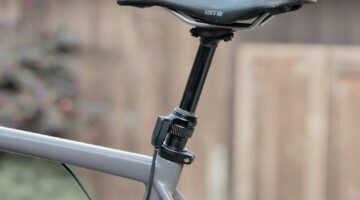Suspension stems made a big splash in the UCI Mountain Bike World Championships in the 1990s, and in recent years, they have experienced a bit of a renaissance with products such as the Stafast suspension stem. We can hear the groans and feel the eye rolls from purists and those who bounced away from past suspension designs after their run of mountain bike dominance.
Yet, we have not heard the same reactions to Katie Compton’s Front IsoSpeed-equipped Trek Boone that she’s won the last two National Championships on or the Specialized Future Shock and Fox AX Cross Fork we have also looked at.
We would guess most readers will find common ground agreeing that for cyclocross and gravel, taking the edge off bumps has some value for control and reducing fatigue. Some use fat, shock-absorbing bar tape, others use two layers of tape or add gel inserts or wear gel gloves. And there are plenty of us who turn to higher-volume tires or more supple casings to both reduce rolling resistance and add comfort to our cyclocross or gravel experience.
Redshift Sports ShockStop suspension stem represents another option that packs some suspension into a stem that does not look much different from the one that's probably on your bike. We take a look at this new gravel suspension option and report on our experiences taking it out for a ride.
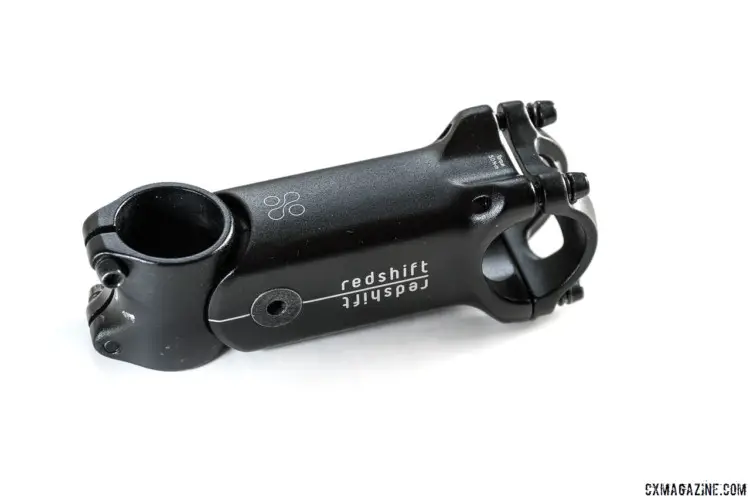
Our test stem was a +/- 6-degree model. It is also available in a 100mm +30-degree high-rise version. Redshift Sports ShockStop Suspension Stem. © Cyclocross Magazine
Redshift Sports ShockStop Ride Experience
Many will look at the stem, see the company’s video and animated images and write it off simply because the angle of the handlebar changes with movement. Girvin Flexstems did this, and some found it disconcerting, while others who haven’t tried it might worry it would be less-than-confidence-inspiring. Anyone who has had a handlebar slip on a bump has good reason to worry that’s what the ride experience might be like, albeit in slow motion.
After installing a 6-degree Redshift ShockStop and riding the road and trails with it, we could not call the Redshift Sports ShockStop a suspension stem; we’d call it a good way to take the edge off bumpy terrain.
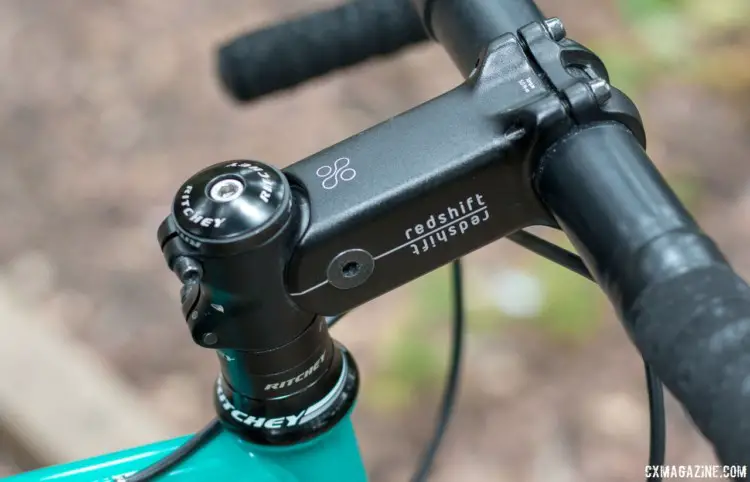
The StopShock does not look much different than a traditional bike stem. Redshift Sports StopShock suspension stem. © Cyclocross Magazine
The ShockStop’s design with swappable elastomers offers noticeable shock absorbtion in the rough stuff, and yet doesn’t produce any annoying bounce during sprinting or climbing. Sure, you can tell it’s compressing when you’re out of the saddle, especially when you’re far out on the levers, but unless we were doing an all-out sprint or climb on pavement, it did not affect our ride quality.
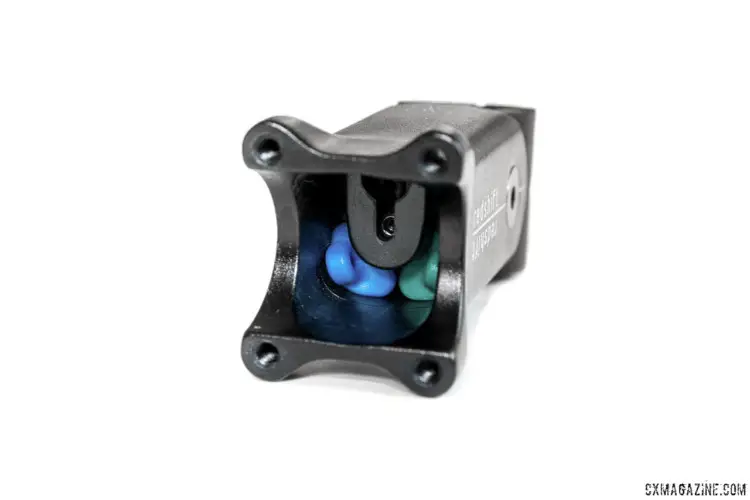
A wedge adjusted by a 3mm hex wrench holds the elastomers in place. Redshift Sports ShockStop Suspension Stem. © Cyclocross Magazine
Off-road, we enjoyed shock absorbtion provided by the ShockStop. We haven’t noticed it’s there until we get to the really rough stuff. It does not twist or have overt movement when riding straight or cornering. The damping quality for small vibrations is subtle, but with harder hits, roots and rocks and drops, the stem goes to work taking the edge off the bumps.
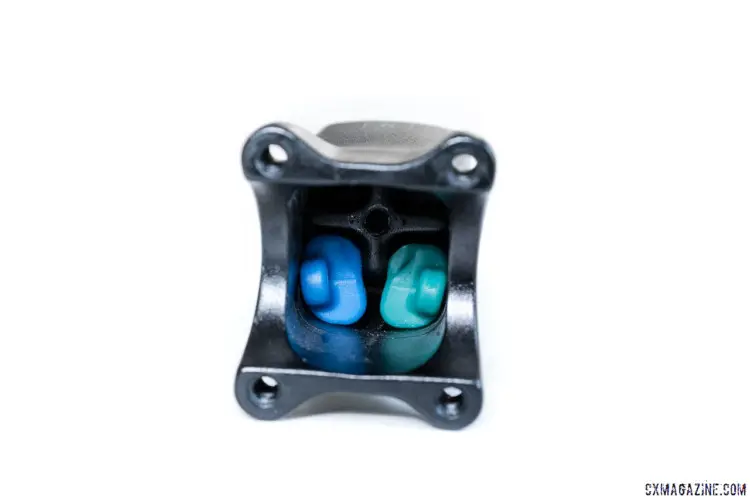
You install two elastomers at a time to adjust the absoprtion. They have varying levels of resistance. Redshift Sports ShockStop Suspension Stem. © Cyclocross Magazine
While riding, the ShockStop feels like a layer of handlebar gel or double wrap of bar tape without the extra girth, and it does not incur much of a weight penalty. Our 100mm, 6-degree test stem weighed 280 grams, which is about 150g more than a lightweight stem or 100g more than many OEM stems.
It’s also worth noting that the appearance of the Redshift Sports ShockStop does not shout suspension stem. It won’t offend any purists (at least at first glance), might not alert competitors to why you’re still fresh after four hours of bumpy gravel and most importantly, has a relatively narrow profile for easy mounting options. Its stack height at the steerer tube is just 4cm tall.
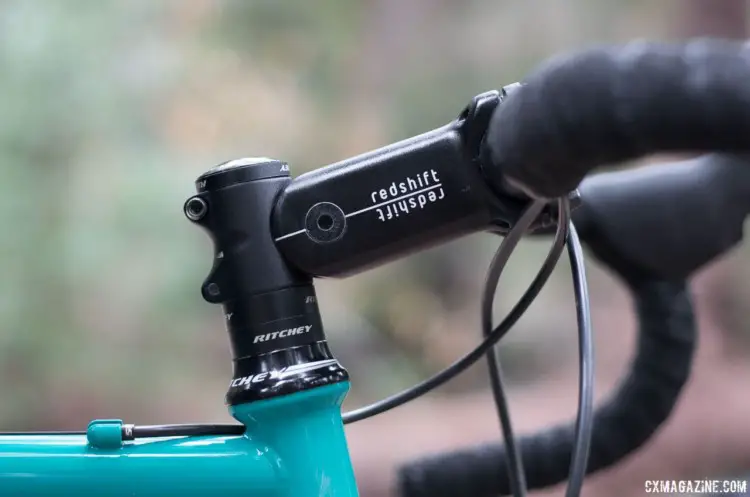
The ShockStop comes in +/- 6-degree and +30-degree models. Redshift Sports StopShock suspension stem. © Cyclocross Magazine
The ShockStop comes with two elastomers installed, and Redshift provides three more so the user can customize their ride experience. The company offers the stem in a +/- 6-degree model with lengths of 90 to 120mm and a 100mm +30-degree model.

Redshift offers a kit of five elastomers so you can adjust the amount of shock absorption. photo: Redshift
We take a closer look at the Redshift ShockStop in the specs and photo gallery below. For more gravel products, see our Gravel Gear archives.
Andrew Yee and Cliff Lee contributed to this report.
Redshift ShockStop Specifications
Cost: $140
Weight: 280g
Stem Angle/Length: +/- 6-degree, 90, 100, 110, 120mm; +30-degree, 100mm
Diameter: 31.8mm; 25.4 and 26.0mm shims available
Elastomers: Two installed, three additional provided
Effective Travel: 20mm
More Info: redshiftsports.com













